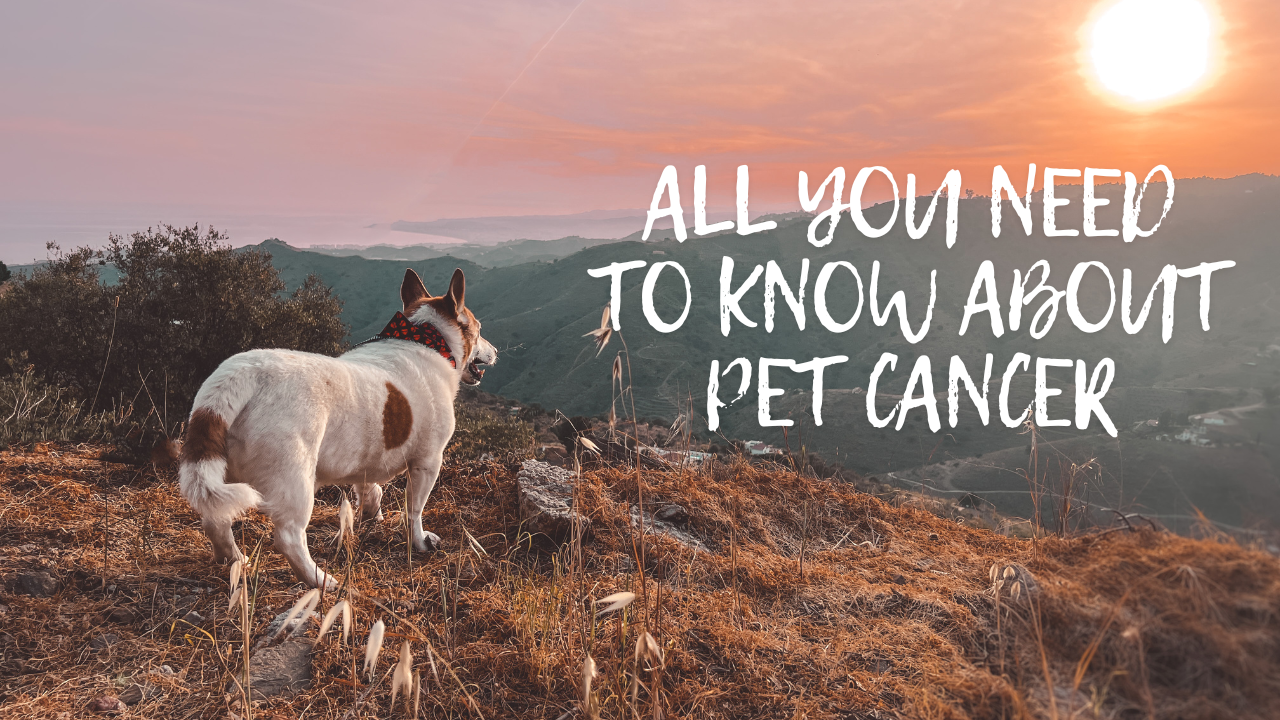Pet Cancer is a topic that hits close to home for me as we lost our dog to cancer only six months ago. We tried everything, but sadly, we could not save him. That doesn’t mean there is nothing you can do or that you should abandon all hope when your worst nightmare comes true: a cancer diagnosis for your beloved four-legged friend.
Symptoms and Prevention
Like humans, pets can be affected by various types of cancer. Skin tumours, mammary gland tumours in female dogs, lymphoma, and osteosarcoma (bone cancer) are some of the most common forms. Our little Yoda had a mammary gland tumour removed years ago and a low-grade sarcoma in her mouth last year.
One in four dogs gets cancer. The good news is that awareness and early detection can make a world of difference. Please watch for any of these:
- Lumps, bumps, or skin discolouration
- Changes in behaviour, appetite, or physical appearance.
- Abdominal swelling
- Bleeding from the nose, mouth or blood in their stool/urine
- Sudden changes in bodyweight
- Difficulty breathing, eating or moving
- Wounds that don’t seem to heal
- Persistent diarrhoea/vomiting
- Unexplained heat, pain or lameness
If anything seems off, don’t hesitate to consult your vet.
Reducing the Risk: a Proactive Approach
While we can’t entirely eliminate the risk, there are steps we can take to lower the likelihood of our pets developing cancer.
- Balanced Diet
Providing a well-balanced diet is paramount. Nutrients from high-quality food play a significant role in maintaining overall health and a robust immune system. We prefer to feed our dogs fresh meat, fruit and veggies, but plenty of kibble brands with high-quality compositions are available if you don’t like home cooking. We also add minerals and supplements to our dogs’ diet. - Regular Exercise / Healthy Body Weight
Keeping our furry friends active supports their physical health and boosts their mental well-being. It’s a win-win! - Limiting Environmental Toxins
Be mindful of potential carcinogens in your pet’s environment. This includes avoiding exposure to secondhand smoke, using pet-safe cleaning products, and being cautious about outdoor chemicals. - Neutering
Vets recommend early spaying of female dogs and cats to significantly lower the risk of breast/uterus cancer. Also, early neutering of male pets reduces their risk of developing prostate or testicular cancer. - Scheduled Vet Check-ups
Regular visits to the vet are crucial. They can help catch any potential issues early and provide guidance on maintaining your pet’s health.
Types of Treatment
There are several ways to treat cancer. In my experience, it’s often a bit of trial and error. What works for one dog might not help for another one. We try and hope for the best outcome.
Your oncologist/veterinarian will most likely discuss the next steps with you and come up with a treatment plan. These options may include one or a combination of therapies such as:
- Surgery
- Chemotherapy
- Laser therapy
- Radiation
- Cryosurgery (freezing)
- Hyperthermia (heating)
- Immunotherapy (harnessing the power of a pet’s own immune system to destroy cancer)
- Pain management
Caring for a Pet with Cancer
Your dog might not show it, but both the cancer and the treatment will most likely cause pain or at least some discomfort. Pay close attention to subtle signs that your dog is in pain, and ask your vet how to help your dog. Don’t force your dog to go on long walks if he doesn’t want to, his body probably hurts.
Your dog’s metabolism changes during cancer. He might lose his appetite. Ask your vet how to best attend to his dietary needs.
Go out of your way to make your dog comfortable. Give their favourite food, shower them with love, and make sure they always have something soft to lay on.
Focus on the quality of life instead of the quantity. Set your own feelings aside and make that tough decision if your dog is in pain and is not getting better. I know this is extremely hard. I was there only three months ago. But sometimes, the best way to help our beloved pets is to end their pain. I said I would fight as long as Blacky would, and I did. It hurt like hell to say goodbye, but I could tell his little body was tired, and there was no point in fighting anymore. The cancer had won.
One last thing: if you want to read a great novel about cancer in dogs, I highly recommend Lily and the Octopus by Steven Rowley. It will make you laugh, it will make you cry. But it definitely helped me deal with it.

